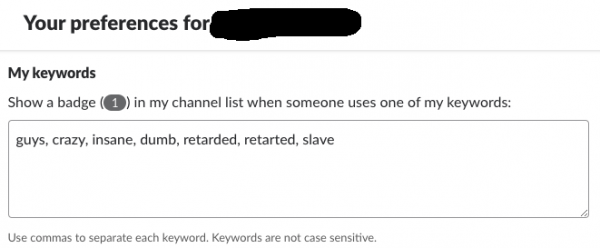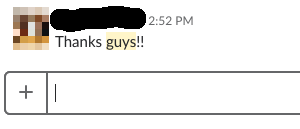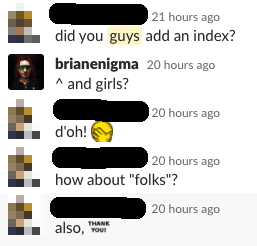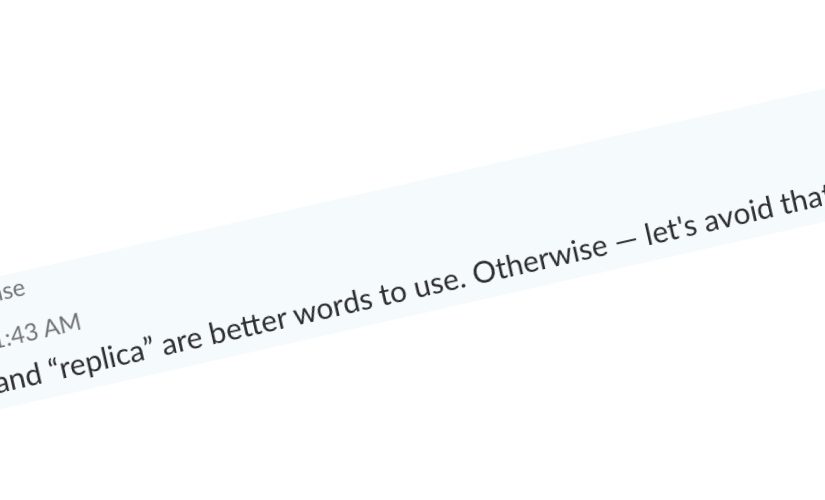I work at a tech company that has great Diversity & Inclusion intentions, but — like many tech companies — faces occasional internal challenges. An idea that came up recently, sparked by a tweet, was to configure Slackbot, the friendly neighborhood Slack autoresponder, to gently poke at people if they used words that are problematic in a gender, race, or ableist way.

We threw these words into the Slackbot list, but with the wording softened a little. For example:
“Guys” is a word we try not to use here. Consider an alternative: team, folks, everybody, friends, gang, crew, colleagues.
For reasons beyond the scope of this blog post, the Slackbot responses got shut down. This made many people sad.
BUT! It turns out you can set up your own version of keyword response. There’s a handy-dandy feature in your personal preferences that lets you define alert words.

With this feature enabled, any time someone (including yourself!) uses one of the words you’ve defined as problematic, you get a little ping and highlight:

This itself doesn’t do anything to help anyone beyond yourself. But what it will do is make you aware of people’s word usage so that you can gently poke that person.

This method of alerting folks isn’t as instant or automated as a Slackbot auto-response. There are a big set of minuses: you need to be a member of the channel, you can only respond when you’re near the computer, and you end up feeling a little like a police officer. But there’s a plus side that I’d argue is even better than the automated Slackbot. It allows you more editorial control in understanding the situation and whether the person is going to respond best to a terse reminder, humor, a larger discussion, or something else.
I definitely encourage you — even if it’s just for noticing and policing your own personal word usage — to set up these keywords in Slack.
